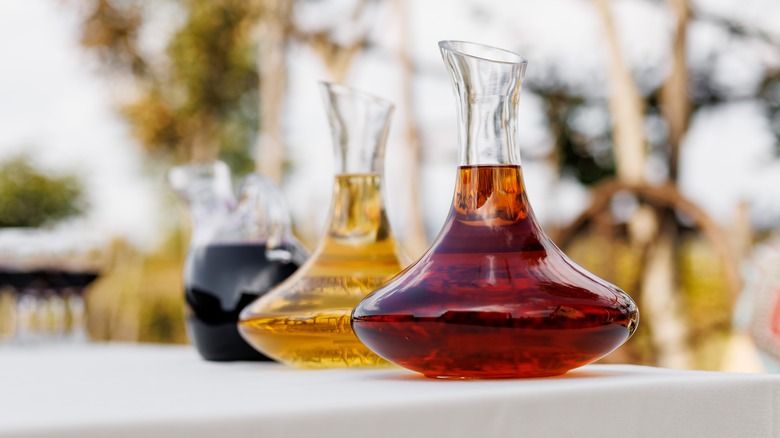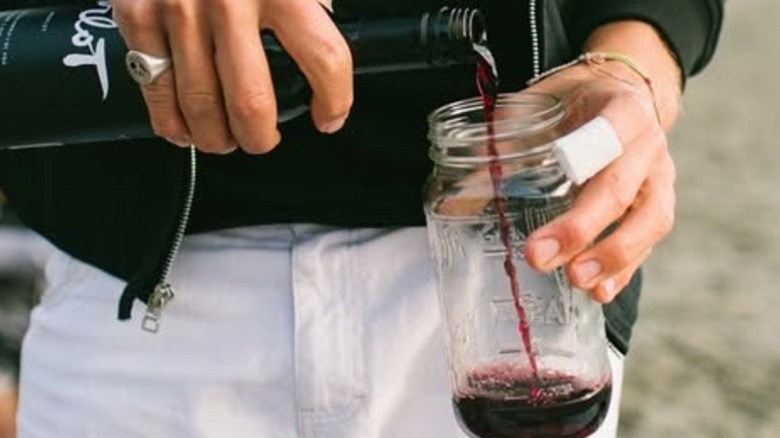The Cost-Effective Wine Decanters You Need Are Already In Your Kitchen
If you're serving wine meant to impress your guests, you may want to keep it in the bottle to show off the label. Alternatively, you could pour the beverage into a fancy decanter. If you're drinking the wine on your own or with people who care more about flavor than appearance, though, you can also decant it using common kitchen items. Joe Mele, a sommelier who co-hosts The Wine Pair Podcast, told The Takeout, "I would look for something made for pouring. So, a water or juice pitcher is perfect."
If you're short on pitchers, you have other options. One of these is a carafe-style coffee pot, which is more typically used to make pour-over coffee. Another is a French press, a low-tech yet surprisingly versatile appliance that can also strain fresh fruit juice and make whipped cream. As Mele said of both items, "Those are great because you can also use the filter if there is sediment." (In addition to aeration, decanting wine also allows sediment to settle to the bottom.) "In a pinch, even a blender or a measuring cup with a pouring lid will work," he told us, but noted that whatever you use should be clear. "You really want to see the wine so you can see any sediment, see how much is left to pour, and be able to pour it without creating a mess."
Jars make less effective decanters, but they work
If your cupboard is crammed with leftover mason jars from a home-canning phase or 20-teens boho wedding, you may be wondering if these will make decent decanters. According to Joe Mele, they're a definite maybe: "One of the purposes of decanting is to let a wine open up and get exposed to air, so almost any container can do that." He did add a caveat, saying, "The main differences between a mason jar and a classic decanter is that decanters generally have wide bottoms, which helps with better aeration and holding sediment. And they're made for pouring into wine glasses, which a mason jar is not."
Not all wines require decanting, though. "Wines that are meant to be drunk young, like a lot of grocery store wines, really do not need to be decanted ... because they're generally fined and filtered." Should your wine fall into this category, go ahead and pour it into a mason jar, if you wish. One thing a mason jar is good for is storing leftover wine if you've lost the cork, but it can also be used as a drinking glass. Mason jars aren't the only type of jar you can use for decanting, drinking, or storage; pretty much any kind of glass vessel will serve the purpose. The first wine I ever tried (at a very young age; I come from an Italian family) was given to me in a jelly jar. To this day I use these to store wine meant for cooking.

